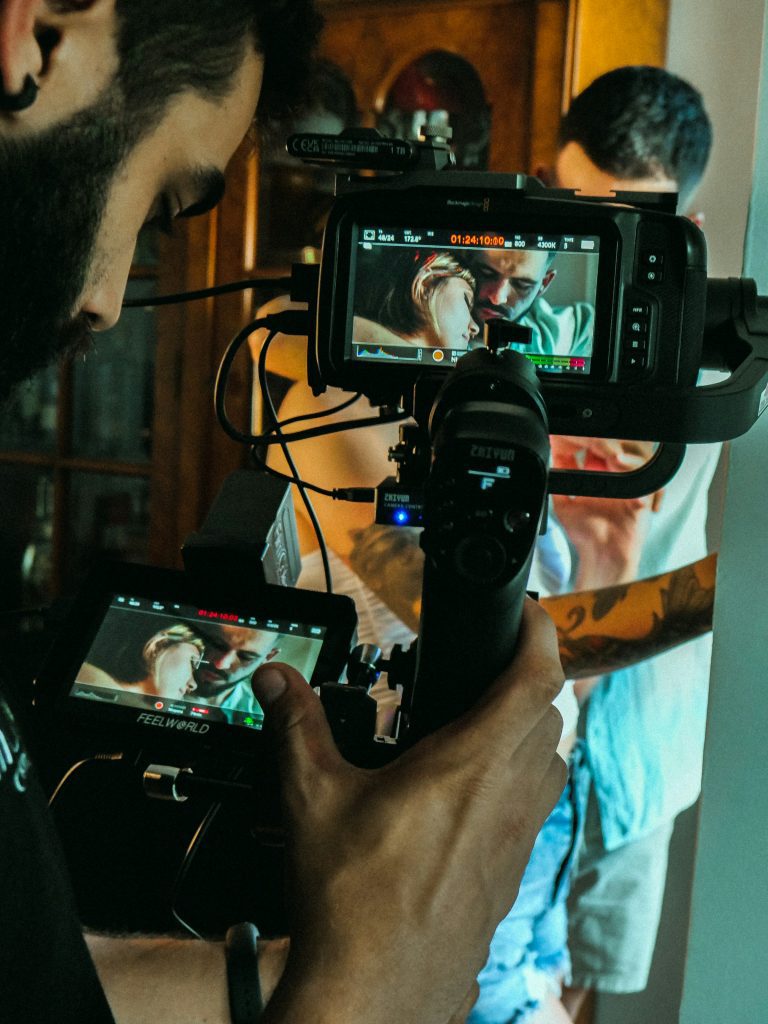Your go-to guide about securing funding for film productions and how film grants help get your project on the big screen
Looking for an inexpensive, viable way to fund your next film project? Here are why grants for film productions are a great option for you. Film grants are provided by nonprofit organizations, art councils, government agencies, and film festivals to help aspiring independent filmmakers and production companies bring their ideas to life.
From development costs to pre- and post-production expenses, each year, hundreds of grantors look to support creative, first-time directors from all backgrounds to produce their first original feature film or documentary. You just have to know where to look. Not to worry. In this comprehensive guide to securing grants for film productions, we have streamlined the process of finding and applying for film grant opportunities, enabling you to focus more on bringing your project to the attention of audiences.
Discover the best film-friendly destinations! Download the latest issue of Destination Film Guide and explore top locations, incentives, and insider production tips—for free!
 Understanding Grants for Film Production
Understanding Grants for Film Production
Why choose a grant over a loan or other forms of funding? Grants for film productions are non-repayable, meaning they are entirely free, and grantors do not expect any form of reimbursement.
However, this should not be confused with the notion that they are not seeking some type of profitability from the films they fund. In most cases, when deciding who to support, grantors will consider films based on their potential marketability and ability to generate profits or notoriety, so keep this in mind when writing a pitch for your film.
What makes it stand out? Why is it different and worth producing for people to see? Securing financial backing is also a great way to establish your name as a filmmaker and gain vital credibility for future projects.
Film production grants are a popular option and the backbone of any new director and as they cover the expenses of a wide range of both production and development stages. This includes costs relating to script writing, casting, hiring crew, equipment, shoot location fees, post-production, and distribution.
Most grant rewards range from a couple of thousand dollars to $30,000. Still, some organizations, such as the Sundance Institute, have been known to provide hundreds of thousands of dollars for projects they consider having great promise.
When Should I Apply?
For most organizations that offer film production grants, the application windows typically open at the beginning of each year and close around April. Keeping this timeline in mind and allowing yourself substantial time beforehand will be very beneficial. Take a few months before the new year to finalize your ideas, type out a script, and craft a well-thought-out timeline and budget for your film. Remember, you will also want to include some test recordings of your project and any other credited films you have worked on in the past.

NYSCA TVFilm is a showcase for short, creative works. Photo credit New York State Council for the Arts Facebook
Film Production Grants & Who Offers Them
When looking for grants, it is always a good idea to start local. Look up your regional film commissions, like the New York State Council on the Arts (NYSCA), which offers grants and funding opportunities to local community creators. The NYSCA 2026 art fellowship deadline ends in January 2026, and they are awarding over $81 million in rewards to creators this year.
At the state level, organizations such as the California Documentary Project, hosted by California Humanities, offer grants for nonfiction films that focus on local Californian stories. One downside, however, of receiving grants through state and government organizations is the possibility of budget cuts or disbursement pauses. As of October 2025, all pauses on grant disbursements through the California Documentary Project have been lifted, and grants are being awarded to this year’s grantees.
Specialized Film Grants for Genre & Film Style
Another opportunity for film production grants is specialized grants for filmmakers working on projects with specific genres or styles. For example, many grantors have specifications on the kind of project they are looking to fund, so looking into grant opportunities within your film’s niche, whether it be a feature film or documentary, can be helpful. Try looking up specific genres (fiction, nonfiction, horror, romance, etc.) or particular causes you want to fund, such as environmental or social political issues.
A popular genre that has many grant opportunities is nature-themed films. Organizations like My World Film, in partnership with Jackson Wild, offer grants to filmmakers working on short films (10-20 min. long) that tell compelling stories related to nature. They offer up to $30,000 in rewards and provide a thorough, step-by-step guide to their application process, along with a transparent timeline of the complete 11-month process for their film production grantees.

Specialized film grants for documentaries. Photo credit Esteban Benites via Unsplash
What do Grantors Look for in Film Grant Applications?
In addition to the quality and originality of your current project, grantors are also looking for a matching mission, a realistic budget and schedule, and the overall impact the film has on its audience. However, the most essential criterion is credibility.
The reality is, when applying and submitting any film project to be selected for a grant, you must put yourself into the shoes of the grantors and ask yourself, “Is this a kind of project I would want to fund?” Much of this decision hinges on whether the grantors believe the filmmaker has potential and the promise of delivering quality work. The only way to gain their confidence is by submitting previous film projects – let them get a feel for who you are as a filmmaker and let your work speak for itself.
Utilize Tech at Your Fingertips
In 2025, with the accessible technology and resources of the modern age, it is relatively easy to start small video projects independently. You would be surprised just how much you can achieve with just a smartphone and basic video editing software. The average camera quality of an iPhone nowadays can capture crystal-clear HD footage, and there are numerous free and affordable editing software options available for Macs, PCs, and tablets. It is an industry norm to have a few smaller, self-funded projects under your belt before working on a feature film. Therefore, it would not be a bad idea to start by having some fun, making a couple of home videos with friends and uploading them to social media platforms like Instagram, Facebook, and YouTube. Don’t be afraid to start now and get yourself out there!
How to Write an Outstanding Film Grant Application
Once you have found the perfect film production grant for you, review its description to see what they are looking for. Does your genre, location and experience level match the kind of candidate they are looking for? Do you identify with the organization’s mission statement and goals? Once you find one that aligns well with both the filmmaker and grantor, it’s time to write a strong logline, or hook.
Captivating hook
The logline should be one to two sentences and creatively entice readers to want to watch your film. Have fun coming up with a punchy hook and ensure that, in those brief words, you are direct, specific, capture the emotional drive, and reveal the genre of your film.
Brief synopsis
Next, a great film synopsis for a production film grant application should be 150 to 1,000 words, further explaining the summary of your film. This should include key characters, plot, subplots, themes, and, most importantly, the ending. This is one of the rare instances where revealing spoilers will be beneficial. Unless specifically stated, grantors want to know that you have thoroughly thought out and prepared everything to produce. Having an ending also helps them determine whether your film is the right fit for what they are looking for.
Director’s statement
Grantors will also ask for a director’s statement when applying for film grants, and this is the perfect opportunity for you to describe your artistic vision and why this project matters to you. Focus on the tone you are going for, why you want to tell this specific story – explain any personal connections you have to the project. In your statement, you should also specify the target audience your film is intended for. Explain why this audience would want to see a movie with your specific story. This is also a good place to include any professional growth you look forward to working on, and be honest about potential challenges you foresee while filming, as well as how you plan to overcome them.

Filmmaker’s storyboard. Photo credit Dix Sept via Unsplash
Timeline & budget plan
For the same reason, grantors want to know that you have an established ending to your film; they want to see that you have a well-thought-out game plan for the entire production of your movie.
Take some time to develop a realistic production plan for the film that includes a complete timeline outlining the different stages of development, pre-production, shooting, post-production, and distribution. Don’t be afraid to go into detail – the more specific, the better.
Mention any notable collaborators, such as cast and crew members, and list the equipment needed before filming begins. All these things should be included in a concise budget plan, because this makes things easier for grantors to see exactly where the funds will be spent, and they can reward accordingly.
Additional materials
Lastly, it would be beneficial to include any additional materials related to your film. Prepare sample scenes and scripts, vision boards, letters of recommendation, and a personalized biography for the filmmaker and other key individuals involved.
Don’t know where to begin? Here are some current notable resources & film grants:
New York City Film Production Grant – The Jerome Foundation
Applications for the Jerome Foundation open at the beginning of each year, offering up to $30,000 in funding to New York City-based film directors in their early careers who are not afraid to take creative risks and are interested in experimental methods of reimagining filmmaking. All applicants must be 18 years old or older and submission deadlines normally close around April.
Cinereach Grants – WomenArts
WomenArts is a valuable resource for those seeking grants for film production, as it is a substantial granting program supporting both emerging and established filmmakers. They offer a variety of film grants covering a wide range of genres and styles year-round, ranging from $ 5,000 to $50,000 for both feature and documentary films, regardless of the film’s stage of production.
Sundance Institute – Documentary Fund
One of the most recognized independent film organizations is the Sundance Institute, which, through its annual Sundance Film Festival, has showcased many notable award-winning indie short films over the years. If you are particularly looking for a documentary film grant, Sundance offers a Sundance documentary fund each year that covers both development and production costs, ranging from $40,000 – $100,000. Applications for next year will open early in 2026. The application process is free, and approximately 25 to 30 projects will be selected for the film grant.

Sundance Institute Directors Lab. Photo credit Sundance Film Festival Facebook
Sundance Success Story!
A very prominent filmmaker who got their first big break through the Sundance Institute is Quentin Tarantino, who wrote and directed highly acclaimed movies such as Pulp Fiction (1994) and Inglourious Basterds (2009). Before he produced his film Reservoir Dogs in 1992 through Sundance, earning him considerable recognition from big film producer Harvey Keitel, he worked on a self-funded movie, which was never officially released but is now available to watch on YouTube, titled My Best Friend’s Birthday. Stories like Tarantino’s are a good example of how grants for film production can serve as a valuable entry point for emerging filmmakers, demonstrating that it only takes one opportunity to prove yourself to the world and rise to prominence in the film industry.
Beyond Film Grants: Supplementary Funding
In addition to grants, various options are available for obtaining funding for film production, including crowdfunding, corporate sponsorships, and tax incentives/rebates.
Crowdfunding
A growing source of obtaining funds for creative passion projects has recently been through online crowdfunding efforts. Filmmakers can post their project ideas online, garner support from fans, and those who want to contribute to the film’s production can help fund it through generous donations. Some reputable crowdfunding websites are Kickstarter and GoFundMe.
Corporate Sponsorships
Another route you can take is to present your idea for a feature film to a big corporation like Disney and Netflix and see if they will agree to pick it up and provide you with funding. This path can also involve setting up a pre-sale and distribution agreement, which guarantees distribution through a broadcaster or streaming platform. The contract outlines the initial funding guarantee you are entitled to in advance.

New tax incentive for film festivals implemented in Colorado. Photo credit Sundance Film Festival Facebook
Tax Incentives & Rebates
There is an opportunity to receive tax benefits and rebates as a reward for spending money and contributing to the local economy when you choose to film in specific locations. Remember to look up whether the location for your next shoot offers any tax incentives so that when you wrap up production, you may apply to get a portion of the money you spent on making the movie back.
For in-depth film tax incentives, flip through our state and regional guide here—FREE!
So there you have it! Entering the world of filmmaking can feel daunting at times, but in today’s world, numerous resources are available to emerging filmmakers, making your journey to achieving your dreams feel more achievable. Film production grants, along with other tax incentives offered regionally, will get your project from paper to screen with peace of mind. Now go out there and apply!
The best film-friendly destinations are just a click away! Subscribe to our newsletter for free and receive exclusive access to location guides, production incentives, and industry trends.
By Destiny Ryan


